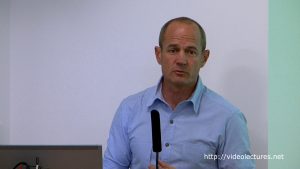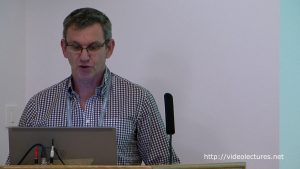This workshop intends to set up the basis for a ‘Network of Champion Institutions’ (NCI), a network of ICT CFT/OER practitioners from participating institutions who will model best practice and share it effectively with others. These experts or ‘champions’ will also offer specific support and advice to others.
Check the videos
Background
In recent years, there have been many professional development initiatives aimed at empowering educators to implement information and communication technology (ICT) into teaching and learning. Under UNESCO’s guidance some of these initiatives have successfully adapted existing Open Educational Resources (OER) to support the acquisition of ICT competencies identified in the UNESCO ICT Competency Framework for Teachers (CFT)[1].
To achieve this end, Ministries of Education and their partners first identified a set of desirable UNESCO ICT CFT competencies and then adapted open resources to build the training courses and materials to support the attainment of these skills. By using a globally sanctioned skills framework and by adapting free, quality, educational resources, the courseware development phase proved relatively quick and development costs has been contained. The training phase, at least for in-service teachers, uses a blended learning methodology, where a small component of the training occurred face-to-face and virtual communities of online facilitators and teachers provide ongoing support. This model ensures that time away from the classroom is minimised and that sufficient time is given to teachers to consolidate skills that needed time and practice to manifest. Many teachers have identified interacting with the online community members as a highlight of the training.
The potential benefits of using this model are attractive, and numerous other UNESCO member ministries have shown interest. For example, Ministries of Education in Tunisia and Zimbabwe have recently approached UNESCO for support in experimenting with a similar model. While some attempt has already been made to share the lessons learned in previous ICT CFT/OER initiatives, and to share the open courseware[2], there is a need for a dedicated ICT CFT/OER community of practice that can respond to specific queries and offer advice and support to build and adapt ICT CFT/OER courses.
Motivation for Attendees
This workshop should appeal to those who are looking for a better way to equip teachers to function as effective educators in our connected world, as well as those who need to set up a teacher’s ICT Integration professional development course quickly and with minimum cost, where skills are consolidated rather fade in the weeks following face to face training. It will also be of interest to anyone wishing to explore use of OER in course design.
There already exists a series of openly licensed UNESCO ICT CFT inspired courses developed by the Ministries of Education in Guyana, Kenya, Oman, Indonesia, Rwanda, Djibouti, Togo, and the Philippines. Each country’s approach to training their teachers has been unique allowing new developers a choice of approaches. This workshop is designed to set up a, ‘Network of Champion Institutions’ to support and guide interested institutions and ministries learn from previous experiences in replicating the development model.
Workshop Purpose
This workshop intends to set up the basis for a ‘Network of Champion Institutions’ (NCI), a network of ICT CFT/OER practitioners from participating institutions who will model best practice and share it effectively with others. These experts or ‘champions’ will also offer specific support and advice to others.
The NCI will mobilize expertise to;
- Share best practices in the implementation of the OER tools and the UNESCO ICT CFT.
- Share open resources and courseware that align with the UNESCO ICT CFT through the UNESCO ICT CFT hub on OER Commons[3].
- Advise on and, if necessary, offer staff capacity building to support ICT CFT/OER initiatives including:
- Use of the UNESCO ICT CFT;
- Mapping a Teachers’ ICT Integration curriculum;
- Finding, selecting and adapting OER to support identified ICT competencies;
- Deploying a learning management system: administrators, courseware developers, online facilitators etc.
- Monitoring and evaluating the impact of the courseware.
- Review and revise institutional policy initiatives to support the use of OER and the UNESCO ICT CFT.
- Advise on appropriate advocacy strategies for institutional personnel.
- Identify gaps in the development of openly licensed teacher training materials for ICT in Education. For example, there are currently few OERs that address competencies associated with the Knowledge Creation approach within the UNESCO ICT CFT.
Who Should Attend?
- Institutional and governmental representatives working in the area of ICT in Education Teacher Training who have an interest in OER and the UNESCO ICT CFT.
- Representatives from UNESCO ICT CFT participating country initiatives in Kenya, Oman, Philippines, Indonesia, Togo, Tunisia and Djibouti,
- Representatives from countries who have previously incorporated the OER and the UNESCO ICT CFT into teacher professional development courses, such as Guyana and South Africa.
- ISKME representatives.
|
Time |
Activity |
Presenter(s) |
|
16:00-16:15 |
Welcome Desire to establish a Network of champion Institutions to model practice, provide advice and offer access OER courseware resources |
Neil Butcher |
|
16:15-17:00 |
Four ICT CFT / OER Case Studies Representatives from Kenya, Philippines, Rwanda and Togo provide a short presentation (8 minutes) and review of processes and lesson learnt.
Plenary Q&A (15 minutes) |
Kenya Philippines Rwanda Togo (French) |
|
17:00-17:15 |
UNESCO ICT CFT / OER Hub Introduction to the OER Commons/ISKME hub of open ICT CFT resources |
ISKME representatives / Andrew Moore |
|
17:15-17:55 |
Network of Champion Institutions (NIC) National group discussions and then plenary discussion:
|
Neil Butcher |
|
17:55-18:00 |
Close Next steps and thanks |
Neil Butcher |
[1] Some illustrative examples of these courses include the Kenya ICT CFT Course at http://kictcft.or.ke/ Rwanda’s ICT Essentials for Teachers Course at https://ict-essentials-for-teachers.moodlecloud.com/ The Guyana ICT in Education for Teachers’ Course at http://colccti.colfinder.org/sites/default/files/guyana/index.html the Philippines’ Teaching, Learning and Technology Course at http://model.upou.edu.ph/course/view.php?id=53 and the Matthew Goniwe School of Leadership and Governance (South Africa) Teachers ICT Integration Course at http://mg.nbatesting.co.za
[2] See the UNESCO ICT CFT repository and hub on ISKME’s OER Commons platform at https://www.oercommons.org/hubs/UNESCO. Each unit of study is openly licensed and linked to at least one of the ICT CFT competencies.
[3] Visit the UNESCO ICT CFT Hub on OER Commons at https://www.oercommons.org/hubs/UNESCO
UNESCO Communication and Information Sector.
Main organizer email: neilshel@nba.co.za







